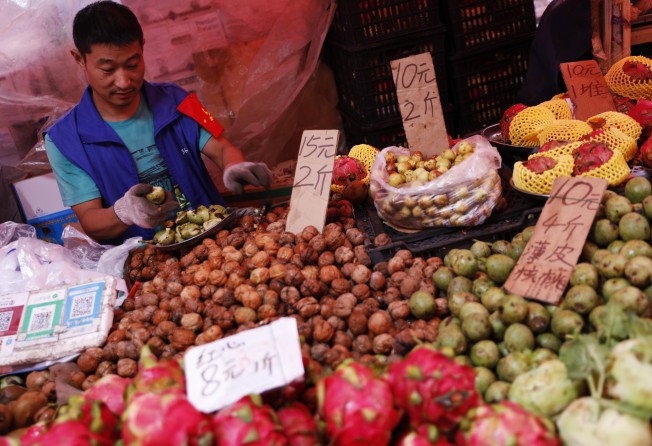A shortage of pork and oil raises the spectre of inflation, and China should be afraid
- A double whammy of the African swine fever outbreak and an attack on oil facilities in Saudi Arabia, a major supplier for China, could send prices of both vital commodities soaring at a vulnerable time for the Chinese economy

No other goods could be as economically, politically and diplomatically significant to China as pork and oil. China, the world’s most populous nation, is also the world’s largest consumer of pork, and its top importer of oil.
Hogs are culturally, economically and politically important in China. That is why, while other nations keep reserves of petroleum and crops, China stockpiles pork on top of these basics. The Chinese produce and devour more than half of the global output of pork, and China’s national and local governments have maintained strategic reserves of it since the 1970s.
As for oil, China built its first strategic oil reserve storage tanks in 2006 and is now believed to manage one of the world’s largest storage capacities. As the world’s second-largest consumer of oil, China last year relied on imports for more than 70 per cent of the crude oil it needs.
It’s vital that Beijing maintains a steady supply of these strategic food and energy reserves, as shortages could lead to politically damaging price inflation.
But as a Chinese idiom warns, misfortune does not come alone. The vicious outbreak of African swine fever affecting pigs and the recent strike on two Saudi oil facilities have come at a bad time for China, as it is already in the grip of a steadily deepening economic downturn.
China has become more reliant on crude oil from Saudi Arabia after reducing its imports from the US, due to ongoing trade tensions with Washington, and from Iran, a consequence of US sanctions on that country. China’s crude oil imports from Saudi Arabia jumped by 38.5 per cent year on year in the first half of this year, making the desert kingdom the largest source of China’s imports, while Chinese imports of US oil plunged 76.2 per cent in the same period.
The rise in global oil prices soon after the Saudi attacks is a reminder of China’s geopolitical vulnerability due to its overreliance on imports, particularly when they come largely from a single source country.
Both pork and oil are believed to carry significant weight in China’s consumer price index (CPI) basket. That is why the 46.7 per cent year-on-year jump in pork prices has contributed 1.08 percentage points to CPI growth in August, which at 2.8 per cent was unchanged from July’s but remained the highest since February 2018. Beijing aims to keep CPI within 3 per cent.
The African swine flu, which has spread to all 31 mainland provinces and regions, has so far reduced the pig population by nearly 40 per cent, according to official data. But researchers say the figure could be as high as 60 per cent, with up to 200 million pigs dead from the disease or culled. With no available vaccine for the virus, the pork shortage is expected to persist.
Finding an effective remedy for the supply crunch for both oil and pork won’t be easy. China’s strategic reserves for both products, though meant to stabilise prices in times of shortages, could not substantively alleviate the pain of a real crunch, in view of the huge quantities of Chinese consumption.
No country could help make up China’s shortage in pork, unless the rest of the world were to stop consuming pork and export all their hogs to China
No country could help make up China’s shortage in pork, for example, unless the rest of the world were to stop consuming pork and export all their hogs to China. And China’s 80-day buffer in oil reserves will be short lived if it cannot maintain steady imports from Iran, Saudi Arabia and Venezuela, another source country under US sanctions.
Rising inflation will make the government’s effort to shore up sagging growth even more difficult, as cost pressures will act as a constraint on monetary policy loosening.
The biggest danger facing the Chinese economy now is that an uptick in inflation will come with stagnant growth, risking the onset of stagflation, as consumer prices are driven up not by strong demand but by rising costs.
Cary Huang is a veteran China affairs columnist, having written on this topic since early 1990s